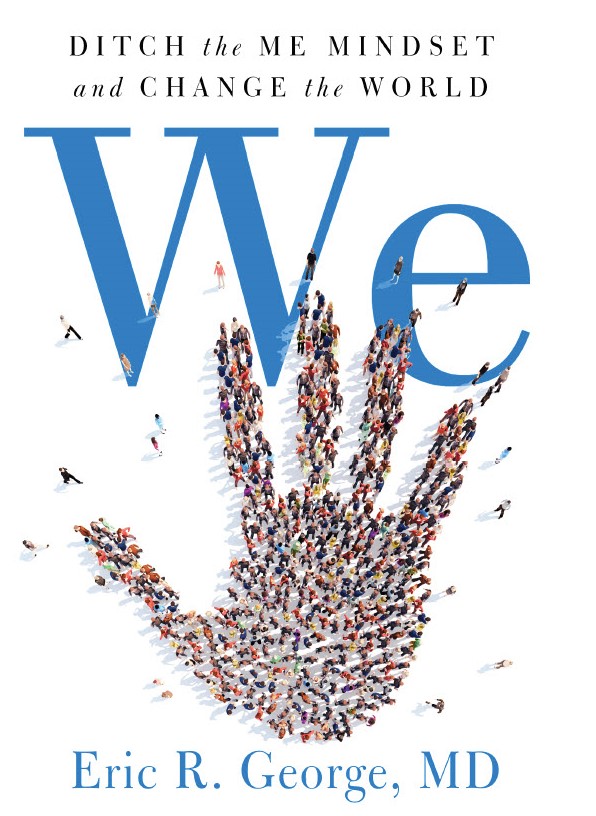Why Maintaining Perspective Is So Important
“In times of crisis, we need to pause and take stock of what is truly important.”
By Dr. Eric George, Founder and CEO at ERG Enterprises

A woman from a religious mission in New Orleans stopped by the clinic one day. She told me about a 9-year-old boy named Faruk, whom her organization had found begging on the streets of Ethiopia and had managed to rescue and fly to the United States. She described the severe burn injury he had suffered years earlier when his house burned down, killing his family. The woman asked if I could help Faruk regain his hand function. I told her to bring him by the clinic and I would try my best.
A week later, the tall, frail boy entered the clinic and sat across from me in the exam room. Faruk suffered a burn scar contracture, which meant the fire burned the skin of his hands to the point it pulled together with the skin of his wrists, resulting in deformity.
Despite the severity of the injury, Faruk appeared upbeat during our first encounter. He smiled as I examined his hands, which made me think he felt grateful to escape the extreme poverty of his life in Africa. Regardless of his attitude, I didn’t know if the boy would ever regain his hand function. I remember thinking it would take a miracle for him to ever experience a normal life.
Over the next year, I operated on Faruk half a dozen times until he could freely use his hands. He still faced tremendous obstacles, including the need to undergo three years of exhaustive rehabilitation. Still, through all of this, I never once heard Faruk complain about his condition, the chronic pain he experienced, or the procedures he endured. Rather, he maintained the same smile and personality that characterized him. And upon successful completion of his rehabilitation, Faruk left our care to renew his life.
Approximately 20 years later, he returned to the clinic to say thank you. Unfortunately, I didn’t see him. I remember listening with joy as the nurses described the tall, handsome, 30-year-old man who stopped by to see me. He introduced himself as Faruk, the boy from Ethiopia, and told the staff to tell me about his life. Faruk still lived in the United States after traveling back to Ethiopia for a time. He graduated law school and became a practicing attorney, and recently started a family.
Still, I think about Faruk on most days when I encounter a patient with an especially gruesome injury or meet someone who can’t envision life after their illness — for instance, a patient who needs to undergo a toe transfer, which requires the removal of a toe to replace a lost or injured finger. It represents just one of many cases that require a remarkable strength of spirit. To these patients, I speak about a boy who faced remarkable odds but successfully overcame them with a positive mindset and sincere appreciation for life. In other words, I try to give them perspective through his experiences.
My work as a surgeon gives me a unique insight into the importance of perspective. Every day with my polytrauma cases, I meet people who suffer tremendous injuries, such as a worker who lost his hand from an accident on an oil rig, or a veterinarian who lost her fingers after getting attacked on the job. I see the unquestionable weight of trauma as my patients recount the events that led to their injury. The nature of our interactions often mutes whatever differences may exist in our values, beliefs, or behaviors. Medicine peels back our seemingly greatest differences to reveal our common humanity and mutual respect for life.
In medicine, my responsibility reaches beyond the physical realm to the psychological, emotional, social, and professional arenas of life. I need not only to surgically repair the physical injury itself but also to repair the invisible disabilities that accompany it. I strive to teach people never to give up no matter how severe or debilitating their circumstances.
During my residency program at the Mayo Clinic, our supervisors told us to tie our thumbs to our hands. I remember thinking, “Why? What does that accomplish?” After the exercise, I realized its purpose: to help us experience the challenges our patients underwent after surgery. It taught me just how difficult life can become without the use of our hands or upper extremity. The simple act of tying my shoe became nearly an impossible task. Multiply that across all the activities we automatically perform and take for granted, and the challenges of living become almost too difficult to bear.
I often bring up Faruk in conversations with patients and health-care providers, as well as people I meet in a business context. He represents the standard of what we can accomplish in life through perspective. My patients listen with hope as I describe his journey, which gives proof that they can overcome their present circumstances and lead a rewarding life. My fellow practitioners relate his story to some of the exceptional cases they encounter. And my business partners stop to recognize what truly matters.

Taken from We: Ditch the Me Mindset and Change the World. Copyright 2019 by Eric George. Published by Magnusson-Skor Publishing, Denver, CO. Used by permission of author. All rights reserved.— Published on March 23, 2020